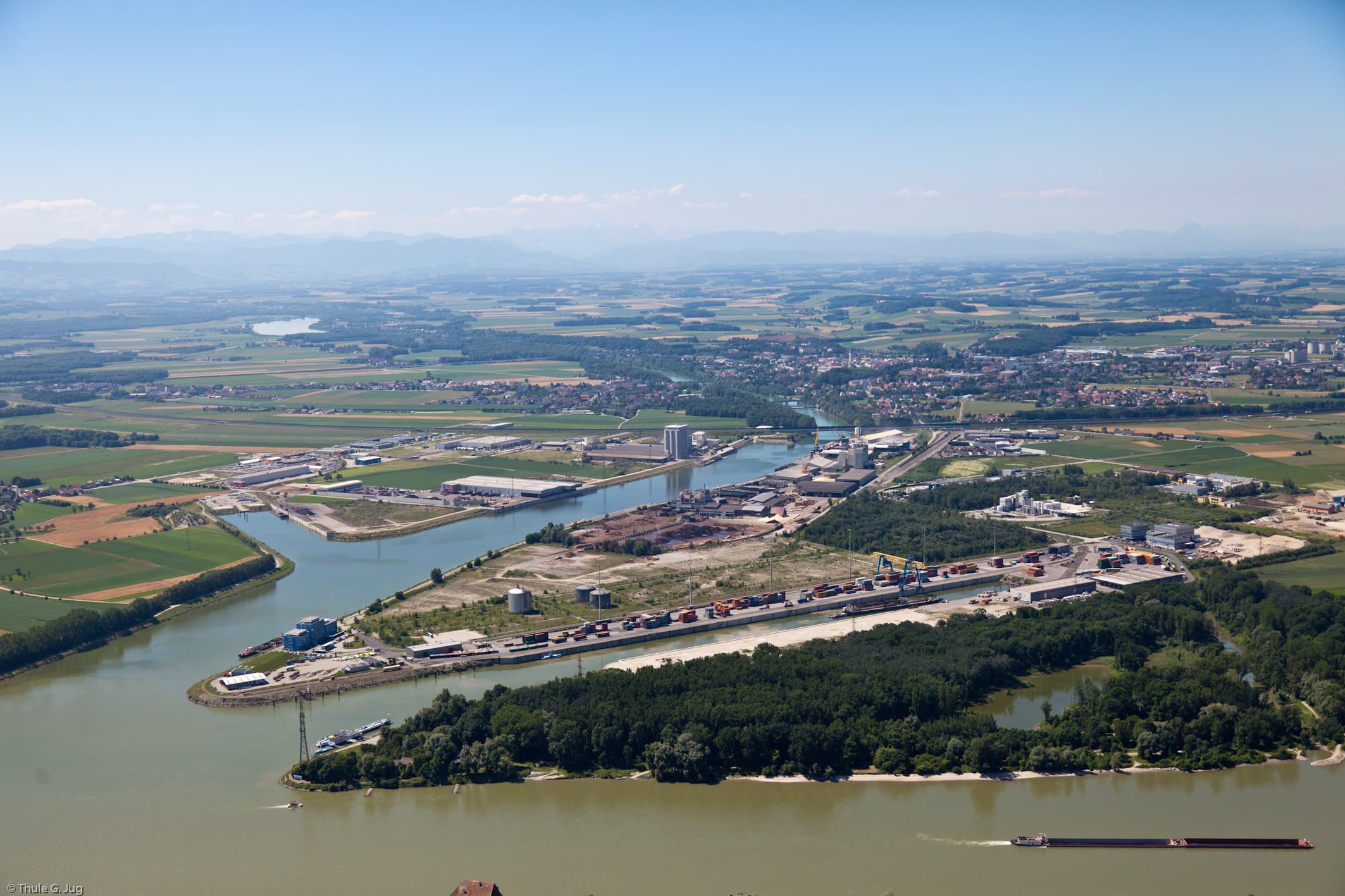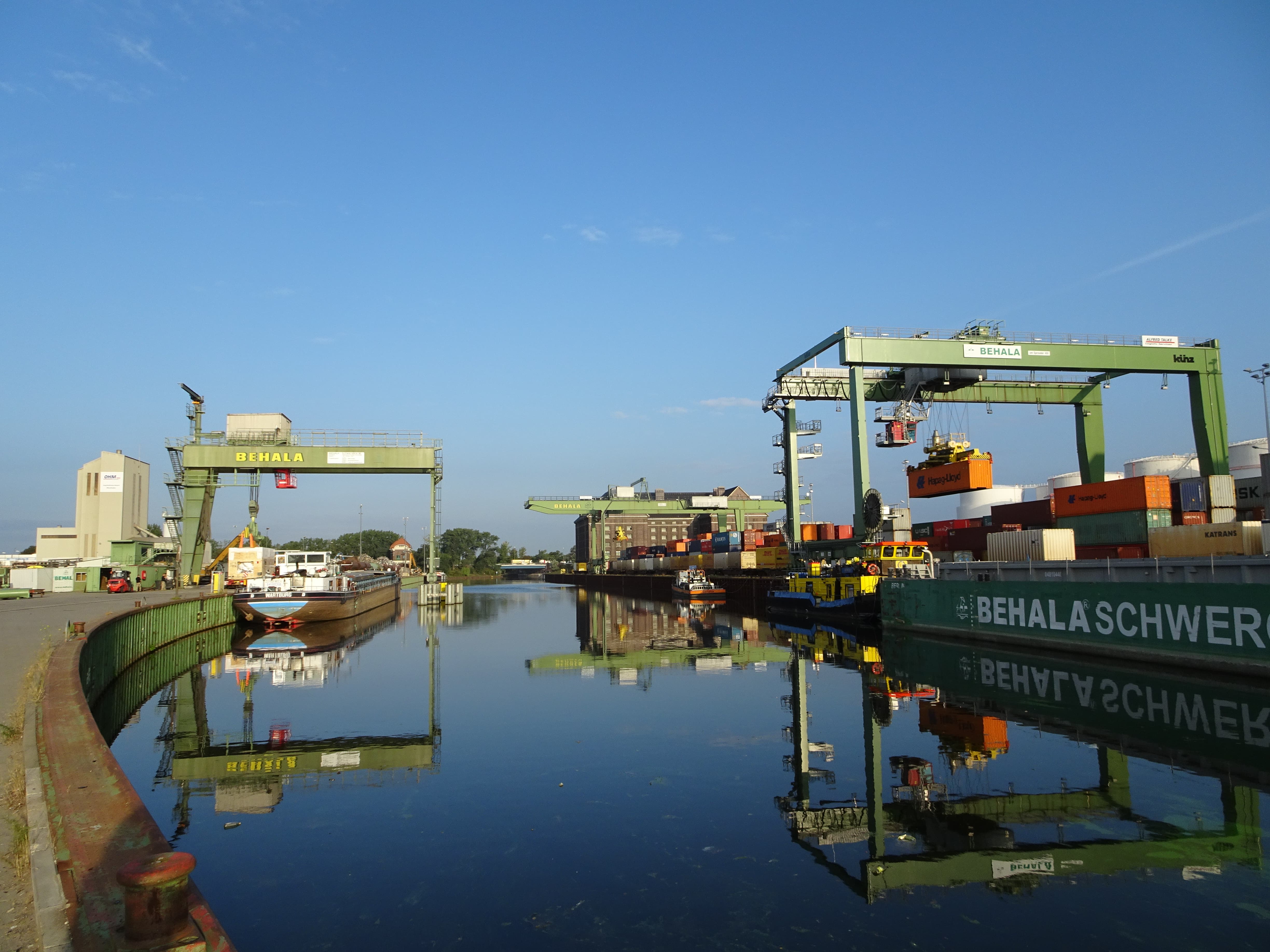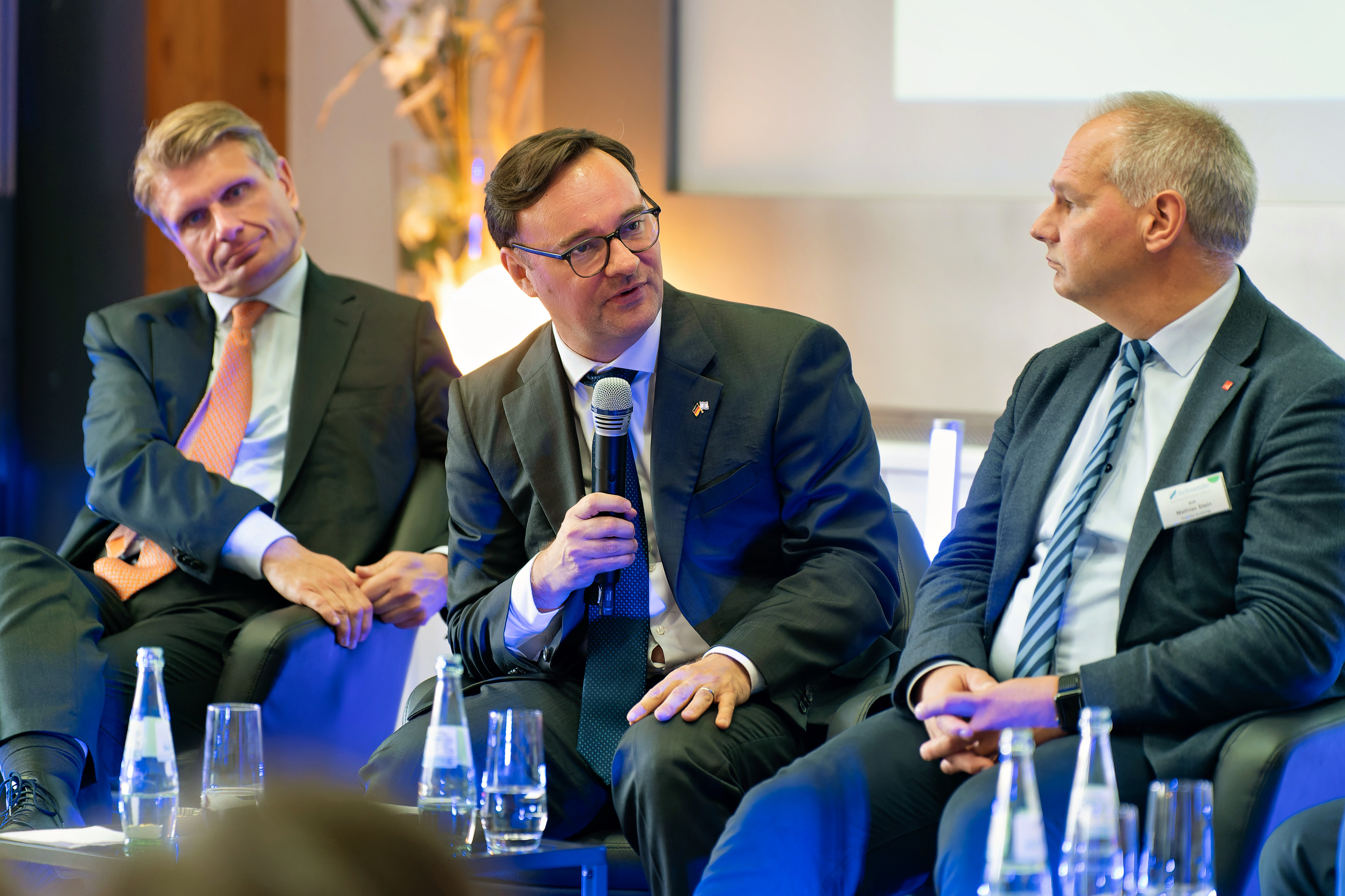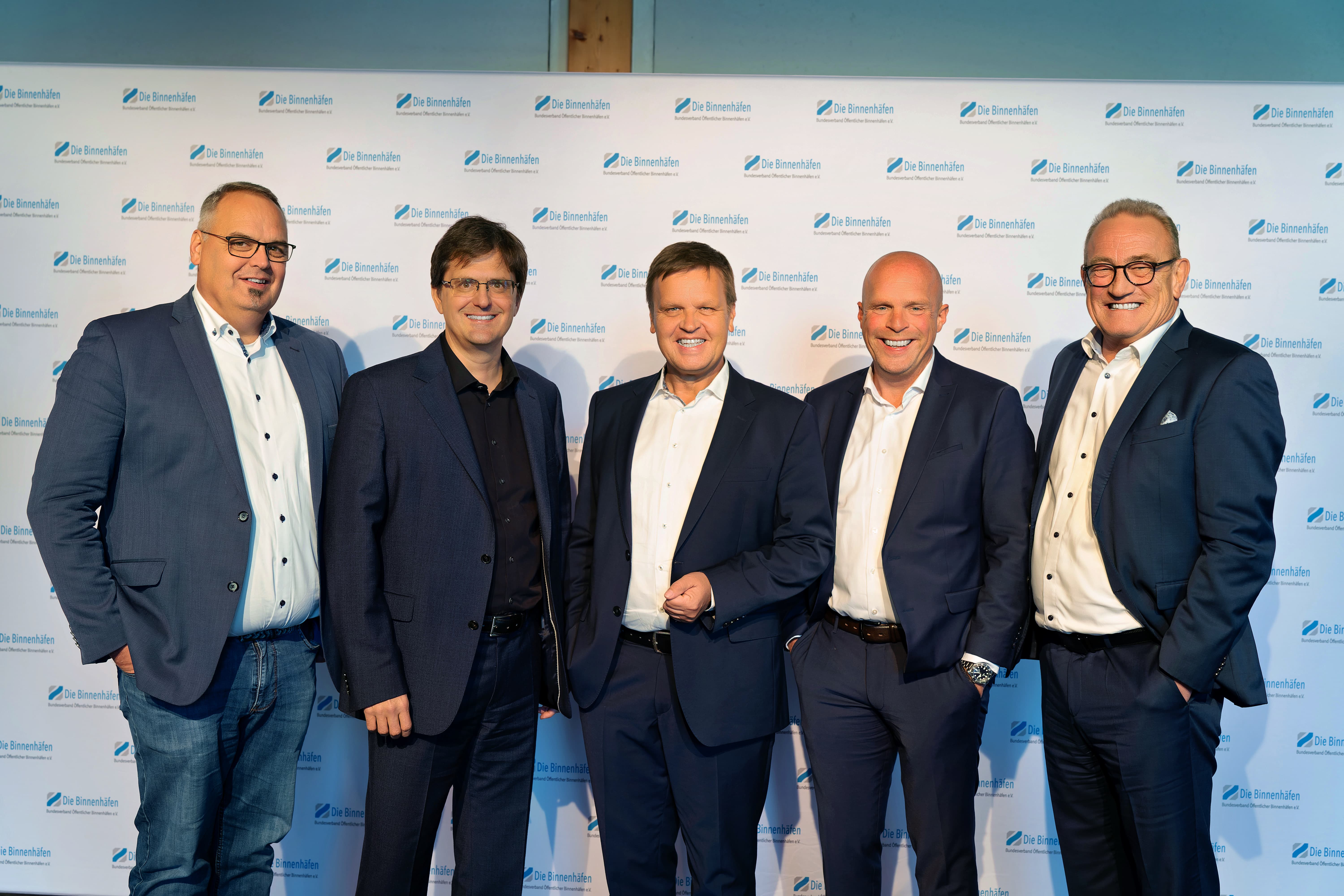Ensuring sustainable mobility is an essential prerequisite for economic growth and employment. Freight transport and logistics ensure the competitiveness of the German economy and the prosperity of its people.
The future of Germany as a business location and the environmental balance of transport are significantly influenced by the intelligent combination of waterway, rail and road as modes of transport. Inland ports as multimodal hubs and architects of sustainable supply chains are the engines of this turnaround in transport policy and the backbone for supplying trade and industry. However, they are not only transshipment points, but are now also centers for services and value creation.
They also create and guarantee long-term jobs and make important contributions to securing the functionality of the local and regional economy. In Germany alone, 1.35 million people are employed in the port-related economy. Nationwide, the ports directly and indirectly secure up to 5.6 million jobs. In addition, due to their location and function, inland ports are closely linked to other forms of mobility, energy production and industrial production. This unique combination makes inland ports predestined to become hubs of the energy transition in terms of distribution and production.
More than 90 port companies with over 100 locations in Germany form the backbone of the German Federation of Public Inland Ports (BÖB). The BÖB is the central voice of the inland port industry in Germany.
The association is a competent point of contact for politicians at local, state, and federal level and cooperates with important trade associations. In this way, it brings the interests of its member companies into the political opinion-forming process.
The BÖB fulfills tasks and pursues objectives in the following areas: politics, the public, institutions, and member companies.
The members form the regional working groups, which are represented in all important German economic regions.
The BÖB currently has the following working groups:
- Ports NRW
- Inland Ports in Northern Germany
- Inland Ports Southwest (Baden-Württemberg and Switzerland)
- Ports in Rhineland-Palatinate and Saarland
- Inland Ports Main-Danube
- Inland Ports Elbe-Oder.
Specialist topics are dealt with in supra-regional committees.
The founding of the European Federation of Inland Ports was initiated by the BÖB. As early as 1993, the BÖB Executive Committee issued a memorandum stating that EU policy has a significant effect on German inland ports and that there is a need for strong representation of the interests of the inland port industry in Brussels. EFIP was founded in Brussels in 1994 with members from Germany, France, Austria, Belgium, Slovakia, Switzerland, Sweden, Italy, the Czech Republic and Luxembourg.
Since then, EFIP has been the strong voice of inland ports in Europe. With the cooperation of the European Sea Ports Organisation initiated in 2007, the association was able to further professionalise and position itself even more strongly.
BÖB and EFIP are working together to improve the competitive conditions for the inland port industry in Europe and to drive forward the transformation of inland ports in terms of freight structure effects, decarbonisation, and digitalisation. Traditionally, sea and inland ports are also centers of energy production and transshipment points for energy sources.
They also ensure the concentration of logistics and value-added processes as well as good, modern local jobs and in the surrounding regions.
The ports in Europe are undergoing a profound transformation process. The crises of the past four years - Brexit, the coronavirus pandemic, and the Russian war of aggression against Ukraine - have made it clear that disruptions in global logistics chains lead to considerable market disruption and loss of prosperity.
The German economy, which is dependent on imports and exports, is particularly affected by this. Economic and, in particular, geopolitical and systemic competition require strong, concrete, and short-term responses. To increase the resilience of the economy as a whole and ensure sustainable economic growth, German ports must be competitive both nationally and internationally.
To this end, the appropriate framework conditions must be created: among other things, through uniform competitive conditions, increased cooperation between ports, and research and development.
At the same time, the world’s population continues to grow, from the current eight billion to an expected ten billion people in 2050. This global population growth will result in additional demands on transport and logistics for the worldwide supply of goods and services through international trade, in which Germany is heavily involved. The infrastructures for the transportation of goods, data and people must therefore be maintained, adapted and renewed.
BÖB
German Federation of Public Inland Ports (BÖB)




